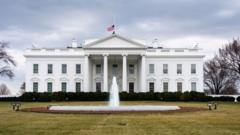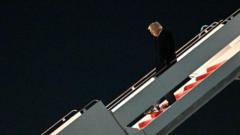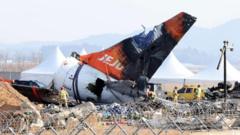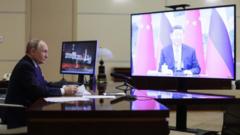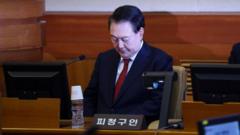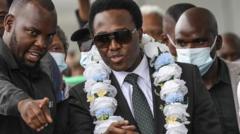In a dramatic turn of events, South Korea's impeached President Yoon Suk Yeol has been charged with insurrection following an unprecedented attempt to impose martial law in December. This legal action, triggered by a political crisis that has divided the nation, has led to the suspension of Yoon's duties and raised questions about his future and that of South Korea’s political landscape.
South Korea's Historic Political Crisis: President Yoon Charged with Insurrection
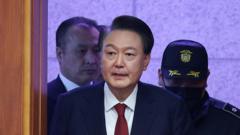
South Korea's Historic Political Crisis: President Yoon Charged with Insurrection
Impeached South Korean President Yoon Suk Yeol faces insurrection charges after a failed attempt to declare martial law, marking a first in the nation’s political history.
In a historic moment for South Korea, President Yoon Suk Yeol finds himself facing insurrection charges after his controversial attempt to declare martial law in December sent shockwaves through the country. This indictment marks the first time in South Korean history that a sitting president has been charged with a crime, spotlighting a severe political crisis that is unfolding.
The move to charge Yoon follows a court's decision to deny a request for further detention, prompting prosecutors to make a swift decision regarding his status. "The punishment of the ringleader of insurrection now begins finally," declared Han Min-soo, a representative from the leading opposition Democratic Party, during a recent press conference addressing the gravity of the situation.
The Constitutional Court has initiated discussions on Yoon's potential dismissal, which could further escalate the turmoil engulfing South Korea. Yoon has largely evaded cooperation with the ongoing criminal investigation concerning the martial law declaration, a dramatic measure aimed at quelling what he termed "anti-state" forces sympathetic to North Korea.
This unprecedented announcement was originally made on December 3, when Yoon's government was already reeling from political deadlock over a crucial budget bill and various corruption scandals involving several cabinet members. Within hours, parliamentary resistance led by opposition lawmakers resulted in an overwhelming vote to block the martial law decree.
Tensions mounted as soldiers attempted to enter Parliament, culminating in a dramatic confrontation with civilians protesting against the military's presence. Soon after, on December 14, Yoon was impeached by lawmakers and suspended from executing his presidential responsibilities—a move that has plunged South Korea into its gravest political crisis in decades.
The nation remains polarized, with many of Yoon’s staunch supporters rallying in his defense. Recently, tens of thousands protested, demanding his release and restoration to office, while speculation continues regarding a possible presidential election should Yoon be removed within 60 days.
As the prosecution's office has yet to comment on the unfolding events, South Koreans find themselves at a crossroads, reflecting on the implications of this political saga for the future of their democratic processes.



